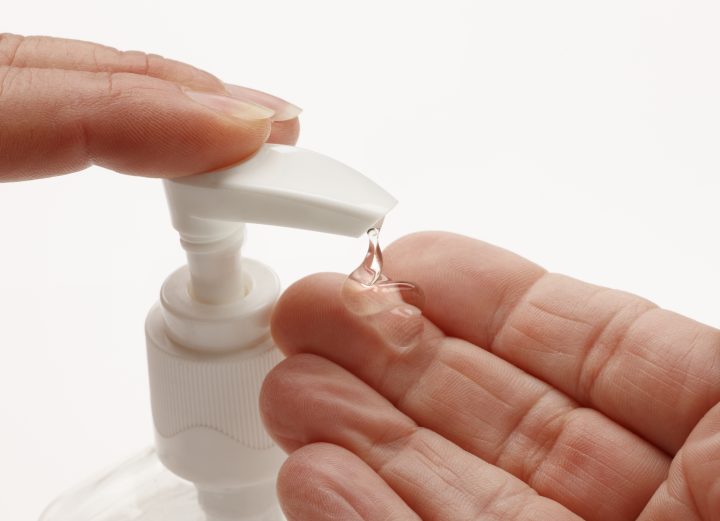The U.S. Food and Drug Administration issued a warning to the company behind hand sanitizer brand Purell to stop advertising allegedly unsubstantiated claims about its products.

A warning letter from FDA, which was issued earlier this month to parent company Gojo Inc., pointed to several Purell products, including its sanitizer gel and health care-advanced hand sanitizing foam.
The letter states these products are intended to be antiseptics for both regular consumers and health care purposes. However, it alleged that the hand sanitizers are in violation of the United States Federal Food, Drug, and Cosmetic Act.
The FDA letter alleged this is because claims about Purell on its website and social media make products seem like a drug, rather than an over-the-counter product that doesn’t require a prescription.
It listed several examples of such claims.

“Kills more than 99.99% of most common germs that may cause illness in a healthcare setting, including MRSA & VRE,” reads one found on the company’s website.
Another claims that Purell products are proven to reduce absenteeism from schools.
“Research has shown that when used alongside a curriculum to teach students about hand hygiene, PURELL® products can reduce student absenteeism by up to 51%[] … Additionally, teachers who follow this program also experience a 10% reduction of absenteeism,” the claim reads.
Another claim found on Purell’s Facebook page says the products can help prevent the spread of infection.
“The PURELL SOLUTION™ has the products you need to help prevent the spread of infection this germ season.”

Get weekly health news
Beyond these statements, the website also advises consumers that it can protect against specific illnesses such as norovirus, the flu and Ebola. The FDA said it is not aware of research that proves these claims.
“However, FDA is currently not aware of any adequate and well-controlled studies demonstrating that killing or decreasing the number of bacteria or viruses on the skin by a certain magnitude produces a corresponding clinical reduction in infection or disease caused by such bacteria or virus,” the FDA warning reads.
Health Canada told Global News in an email statement that it is “not aware of the use of unproven claims” involving Purell’s marketing of products.
“Should Health Canada become aware of false marketing by any market license holders, appropriate actions will be taken to ensure compliance with the Food and Drugs Act,” it said.

In another statement provided to Global News, Gojo Inc. said it has begun updating online messaging following the FDA warning.
“It is our responsibility to ensure that we comply with all requirements of FDA regulations and federal law, and we take that responsibility very seriously. To that end, we have begun updating relevant website and other digital content as directed by the FDA and are taking steps to prevent a recurrence,” the statement read.
“It is important to emphasize that the FDA letter was not related to the safety or quality of our products, or our manufacturing processes. Our products can and should continue to be used as part of good hand hygiene practice, to reduce germs.
A look at the usefulness of hand sanitizers
Jason Tetro, microbiologist and host of podcast Super Awesome Science Show, told Global News that hand sanitizers are useful, but don’t act as a substitute for properly washing hands.
“You’re not removing anything, because basically removing means that you have to put your hands under water or rubbing paper towel,” Tetro explained.
“You’re killing germs; that’s what a hand sanitizer is designed to do,” he said, adding the alcohol will kill organic material.

“If that material happens to be bacterium or a virus, it’s going to be destabilized to the point where it may not be able to continue functioning or living.”
Tetro said hand sanitizing should be an “interim” solution, and people should wash their hands as soon as they can.
He noted that in the case of the coronavirus, the same explanation applies.
“What we’re doing is using alcohol to destabilize a particular piece of organic material, like a virus, and trying to get it to the point where it no longer as the ability to effect, and that essentially is what alcohol does with respect to coronavirus,” Tetro said.
Hand sanitizers come with other limitations, as well. According to the U.S. Centers for Disease Control and Prevention, they may not always work if hands are visibly greasy or dirty, such as after consuming food, playing sports or gardening.
The CDC warns that they also may not remove harmful chemicals such as pesticides and heavy metals — but soap and water can.
How to use hand sanitizer properly
How effective hand sanitizing is, though, depends largely on how it’s used. Tetro said hand sanitizers should be at least 60 to 70 per cent ethanol.
Whether it has a scent or colour, or is infused with aloe, he said, doesn’t matter.
Tetro also noted many people don’t use enough of the product and also don’t rub it for long enough.
“You have to make sure you’re using enough to keep your hands wet for 15 to 20 seconds,” he said.










Comments
Want to discuss? Please read our Commenting Policy first.